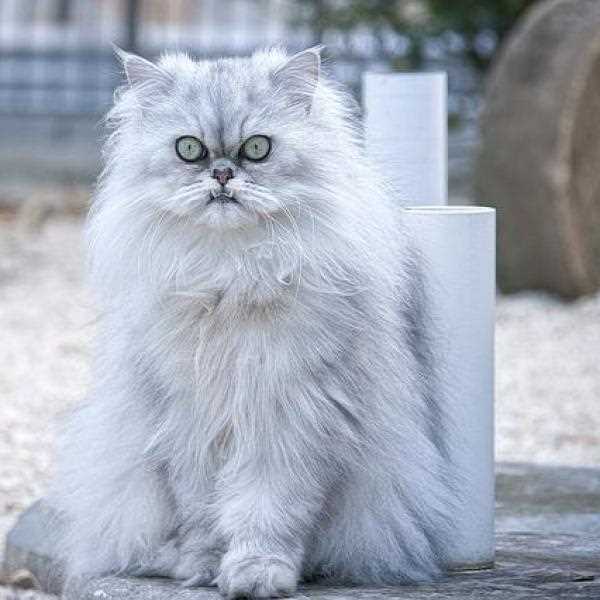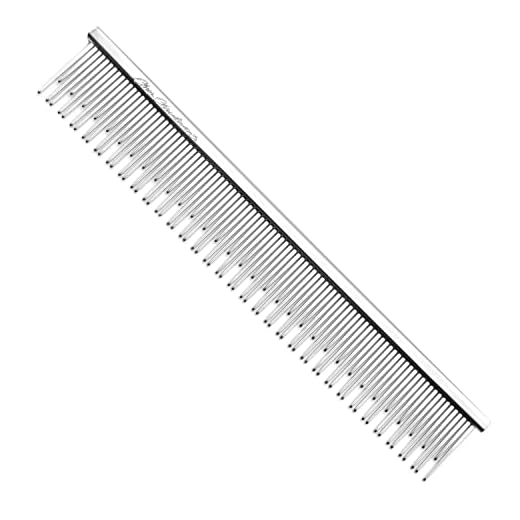


If you are looking for the perfect grooming tool for your long-haired friend, you’ve come to the right place. This article explores various grooming solutions that cater specifically to the unique needs of fluffy companions with luxurious coats. The right tool can make a significant difference in maintaining a healthy and beautiful fur coat, preventing matting and reducing shedding.
This guide is ideal for pet owners who want to ensure their furry companions stay comfortable and well-groomed. You will find a selection of grooming tools that have proven effective for long-haired breeds, including user reviews and expert recommendations. Each option is evaluated based on its design, ease of use, and effectiveness in tackling tangles and loose fur.
In the following sections, we’ll discuss various grooming tools, highlighting their features and benefits. Whether you prefer a traditional comb, a specialized rake, or an innovative grooming glove, you’ll discover valuable insights to help you choose the right product for your beloved pet. Get ready to transform grooming time into a pleasant experience for both you and your adorable companion!
Best Grooming Tool for Long-Haired Felines
Choosing the right grooming tool for long-haired breeds is essential to maintain their luxurious coats. A tool with fine bristles or pins effectively removes loose hair and prevents matting. Look for a design that features a comfortable handle, allowing for extended grooming sessions without strain.
A tool with dual functionality can also be beneficial. One side may have softer bristles for everyday grooming, while the other side features firmer pins to tackle tangles. This versatility ensures a thorough grooming experience, addressing various coat needs.
Key Features to Consider
- Material: Opt for stainless steel or high-quality plastic for durability.
- Size: Choose a size that fits comfortably in your hand for better control.
- Ease of Cleaning: A removable head or simple design makes maintenance easier.
- Comfort: Ergonomic handles reduce hand fatigue during grooming.
Regular grooming with the right tool is vital for maintaining a healthy coat. It reduces the risk of skin issues and keeps the fur soft and shiny. Incorporating this practice into your routine will lead to a happier and healthier feline.
Choosing the Right Brush Type for Persian Fur
For maintaining the luxurious coat of a long-haired feline, selecting the appropriate grooming tool is critical. A slicker tool effectively removes tangles and loose strands without damaging the delicate undercoat. Its fine bristles penetrate deeply, ensuring a thorough grooming session.
A wide-toothed comb serves as an excellent companion for detangling. This type efficiently works through knots without pulling on the skin. Utilizing it in combination with a slicker can enhance the overall grooming experience, making it more enjoyable for both the animal and the owner.
Types of Grooming Equipment
- Slicker Tool: Ideal for removing loose hair and preventing matting.
- Wide-Toothed Comb: Perfect for detangling and maintaining a smooth coat.
- Undercoat Rake: Useful for addressing the thick underlayer of fur that can trap dirt and debris.
Each type of equipment serves a unique purpose, and employing them in tandem can lead to optimal results. Regular grooming not only enhances the appearance of the fur but also promotes skin health by increasing blood circulation.
Pay attention to the frequency of grooming sessions, as long-haired breeds are prone to matting. Establishing a routine can significantly reduce the time spent on grooming while ensuring the coat remains in pristine condition.
With the right selection of grooming tools, maintaining the beauty of a long-haired companion becomes a manageable task, ensuring they stay comfortable and healthy.
Key Features to Seek in a Grooming Tool for Long-Haired Felines
When selecting a grooming tool for long-haired breeds, prioritize a design that minimizes discomfort while effectively removing loose fur. Look for options with rounded or soft tips to prevent skin irritation, ensuring a pleasant experience for your companion.
Another critical aspect is the bristle material. Stainless steel or fine, flexible bristles can help untangle knots without pulling on the coat, making grooming less stressful. A tool with a comfortable grip will also enhance your ability to maneuver while brushing, allowing for a more thorough grooming session.
Additional Considerations
- Size and Shape: Choose a brush that fits comfortably in your hand and allows access to various areas of the body, particularly around sensitive spots like the face and underbelly.
- Ease of Cleaning: Opt for a model that can be easily cleaned to maintain hygiene and functionality over time.
- Versatility: Some tools come with interchangeable heads or settings for different types of grooming tasks, such as deshedding or detangling.
Investing in a grooming tool that incorporates these features can significantly enhance the grooming routine, promoting a healthier coat and a more enjoyable bonding experience between you and your furry friend.
Comparative Review of Popular Brushes for Long-Haired Breeds
Choosing the right grooming tool is critical for maintaining the coat of long-haired breeds. The effectiveness of each tool varies based on factors such as hair type, density, and the specific needs of the animal.
Two main categories of grooming instruments stand out: de-shedding tools and combs. Each serves a distinct purpose, catering to different aspects of coat care.
De-shedding Tools
These instruments are designed to remove loose undercoat and reduce shedding. They feature fine, angled teeth that penetrate deep into the fur, pulling out loose hair without damaging the top coat. Regular use of a de-shedding tool can significantly minimize matting and tangles.
Combs
Combs are ideal for detangling and smoothing the coat. A wide-toothed comb is effective for removing knots and tangles, while a fine-toothed comb can be used for finishing touches. The choice of comb depends on the thickness and length of the fur.
Comparison Table
| Feature | De-shedding Tool | Comb |
|---|---|---|
| Function | Removes loose undercoat | Detangles and smooths |
| Hair Type | Best for thick, double coats | Suitable for all hair types |
| Frequency of Use | Weekly to bi-weekly | Daily |
Ultimately, the choice of grooming tool should align with the specific coat type and grooming needs. Regular grooming not only keeps the fur looking its best but also contributes to the overall health and comfort of the breed.
Maintenance Tips for Keeping Your Grooming Tool in Optimal Condition
Regular cleaning is key to maintaining your grooming tool. After each use, gently remove any hair or debris caught in the bristles using your fingers or a comb. This prevents buildup and ensures that the tool remains effective for future grooming sessions.
Additionally, disinfect the tool periodically to eliminate bacteria and odors. Use a mixture of warm water and mild soap to soak the bristles, followed by rinsing and air drying. Avoid submerging the handle, especially if it contains electronic components.
Storage Recommendations
- Store in a dry, cool place to prevent mold or mildew.
- Avoid placing heavy items on top to maintain the shape of the bristles.
- Consider using a protective case to shield it from dust and damage.
By following these maintenance tips, you can ensure that your grooming tool remains in excellent condition, providing effective care for your furry friend.
Best cat brush for persian cats
Features
| Part Number | 1409219 |
| Model | 1409219 |
| Color | Metallic |
| Size | 6in Cat/Carding |
Features
| Part Number | 40010W |
| Model | 40010W |
| Color | White |
| Release Date | 2022-06-24T00:00:01Z |
| Size | 5 Piece Set |
| Language | English |
Features
| Part Number | Long Hair |
| Model | LHC-24 |
| Color | Purple |
| Size | Long Hair |
Video:
FAQ:
What type of brush is best for grooming Persian cats?
When grooming Persian cats, a slicker brush is highly recommended. This type of brush features fine, tightly packed bristles that effectively remove loose hair and tangles from their long fur. Additionally, a wide-toothed comb can be useful for detangling any knots without pulling on the cat’s skin. Regular grooming with these tools helps to prevent matting and keeps their coat looking healthy and shiny.
How often should I brush my Persian cat?
Persian cats require frequent grooming due to their long, thick fur. It is advisable to brush them at least two to three times a week, but daily brushing is even better to prevent tangles and mats. Regular brushing also helps reduce shedding and hairballs, which can be a concern for long-haired breeds. Establishing a grooming routine not only maintains their coat but also strengthens the bond between you and your pet.









